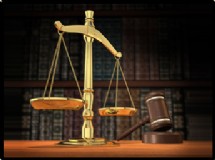Perhaps the most important measure that the citizens of any democracy have to employ in order to express their opinion of their government is the power to vote.
It is via this measure that the founding fathers intended to give the citizens the power to guide the government and its policies.
However, modern day ease of communications has opened a new avenue for the nation's citizens to communicate with their government - the public opinion poll.
Some experts assert that in this day of the permanent political campaign, the public opinion poll is even more effective than the vote in holding elected officials accountable and that such polls virtually dictate the behaviors of politicians.
Certainly, such polls mean that politicians are under constant scrutiny and that their behavior can be immediately relayed to the public.
On the other hand, the opinions of the constituents can be relayed to the politician equally as fast.
This sort of immediate feedback is seen as paramount to the performance of the modern-day politician.
Not so long ago, the voting public was the guiding factor in determining the nation's elected government.
Voters are still a force to be reckoned with, of course, but it is increasingly the power of the opinion poll that guides political policy.
Lawmakers can gauge public sentiment regarding a matter before they actually initiate policy.
Although polls are certainly not definitive, they are certainly indicative of the public voice on many issues.
However, such polls are somewhat limited.
Polls can present a number of acceptable responses but cannot give each person's individual opinion regarding any particular manner.
Additionally, polls may try to separate the voting public from non-voters, with the most success, of course, being with polls that are conducted only with registered voters, but impromptu polls rely heavily on the honesty of the individual being polled.
For instance, consider the upcoming presidential election and how the news is constantly referring to which candidate is "ahead in the polls".
How many times have citizens heard the phrase, "the polls indicate..
..
"? Although polls and public opinion are not 100% reliable predictors of who will win the election or what the public policy of the day will be, they are definitely indicators of what is important to the nation's voting public.
Some experts insist that public opinion polls are so predictive that hoards of voters may not even bother to vote if they are not among the polled majority.
Whether this is true or not, American's do rely heavily on their polls to define public opinion.
The issue of voting has been proven in the last two elections to be less of a factor than it once was in determining the nation's government.
The last two American presidents have been elected despite the fact that they were not the beneficiaries of the majority vote.
The Electoral College has been under debate for quite some time as an outdated system of election and events surrounding the last two elections may have cemented that sentiment.
Certainly, the majority of public opinion polls would likely indicate that the majority of Americans would like to have the electoral system reevaluated.
Most elections, however, are not so close as to become issues between the popular vote and the electoral vote.
Polls are easily manipulated also, and may be therefore somewhat unreliable.
As mentioned earlier, individuals who respond to a poll are generally given a choice between several answers.
Again, the actual nuances of their opinions are not conveyed in these responses, although they may be noted by the pollster, and even passed along as part of the final results.
Still, it is the wording of the poll itself that may ultimately guide the respondent.
For this reason, opinion polls may be less reliable than election polls.
Election polls ask the respondent to pick a candidate whereas opinion polls rely on a number of factors for accuracy, including the complexity of the information that the respondent has been subjected to, their base of information, their personal beliefs, and even how they interpret the issues.
Therefore, public opinion polls are subject to bias and error.
Still, it is the public opinion poll that permanently campaigning politicians must rely on to determine how they are doing at their jobs and whether or not they should attempt reelection.
As the politician invests more and more time into campaigning, the public is watchful and waiting to render an opinion.
The politician must now campaign for party representation, then for office, and then immediately for the next election; always remaining as aware of how his or her actions are interpreted and greeted by the nation's voting public.
It is via this measure that the founding fathers intended to give the citizens the power to guide the government and its policies.
However, modern day ease of communications has opened a new avenue for the nation's citizens to communicate with their government - the public opinion poll.
Some experts assert that in this day of the permanent political campaign, the public opinion poll is even more effective than the vote in holding elected officials accountable and that such polls virtually dictate the behaviors of politicians.
Certainly, such polls mean that politicians are under constant scrutiny and that their behavior can be immediately relayed to the public.
On the other hand, the opinions of the constituents can be relayed to the politician equally as fast.
This sort of immediate feedback is seen as paramount to the performance of the modern-day politician.
Not so long ago, the voting public was the guiding factor in determining the nation's elected government.
Voters are still a force to be reckoned with, of course, but it is increasingly the power of the opinion poll that guides political policy.
Lawmakers can gauge public sentiment regarding a matter before they actually initiate policy.
Although polls are certainly not definitive, they are certainly indicative of the public voice on many issues.
However, such polls are somewhat limited.
Polls can present a number of acceptable responses but cannot give each person's individual opinion regarding any particular manner.
Additionally, polls may try to separate the voting public from non-voters, with the most success, of course, being with polls that are conducted only with registered voters, but impromptu polls rely heavily on the honesty of the individual being polled.
For instance, consider the upcoming presidential election and how the news is constantly referring to which candidate is "ahead in the polls".
How many times have citizens heard the phrase, "the polls indicate..
..
"? Although polls and public opinion are not 100% reliable predictors of who will win the election or what the public policy of the day will be, they are definitely indicators of what is important to the nation's voting public.
Some experts insist that public opinion polls are so predictive that hoards of voters may not even bother to vote if they are not among the polled majority.
Whether this is true or not, American's do rely heavily on their polls to define public opinion.
The issue of voting has been proven in the last two elections to be less of a factor than it once was in determining the nation's government.
The last two American presidents have been elected despite the fact that they were not the beneficiaries of the majority vote.
The Electoral College has been under debate for quite some time as an outdated system of election and events surrounding the last two elections may have cemented that sentiment.
Certainly, the majority of public opinion polls would likely indicate that the majority of Americans would like to have the electoral system reevaluated.
Most elections, however, are not so close as to become issues between the popular vote and the electoral vote.
Polls are easily manipulated also, and may be therefore somewhat unreliable.
As mentioned earlier, individuals who respond to a poll are generally given a choice between several answers.
Again, the actual nuances of their opinions are not conveyed in these responses, although they may be noted by the pollster, and even passed along as part of the final results.
Still, it is the wording of the poll itself that may ultimately guide the respondent.
For this reason, opinion polls may be less reliable than election polls.
Election polls ask the respondent to pick a candidate whereas opinion polls rely on a number of factors for accuracy, including the complexity of the information that the respondent has been subjected to, their base of information, their personal beliefs, and even how they interpret the issues.
Therefore, public opinion polls are subject to bias and error.
Still, it is the public opinion poll that permanently campaigning politicians must rely on to determine how they are doing at their jobs and whether or not they should attempt reelection.
As the politician invests more and more time into campaigning, the public is watchful and waiting to render an opinion.
The politician must now campaign for party representation, then for office, and then immediately for the next election; always remaining as aware of how his or her actions are interpreted and greeted by the nation's voting public.
SHARE






































